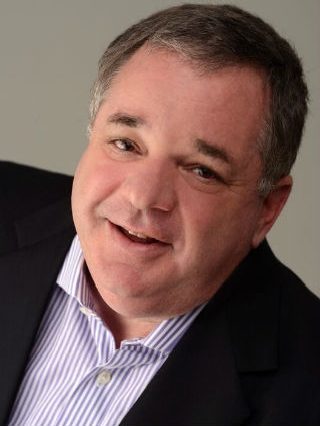“Unaffiliated?”
As he said it, his face fell into itself like an underdone soufflé being yanked from a hot oven into a frigid kitchen. A long pause had preceded its utterance and now an even longer one followed it.
My interview subject was the president of a large Jewish charitable organization and a respected local businessman. This was only the first of many interviews I lined up for my piece, but it was off to an inauspicious start.
My mind raced. Did it deserve a pithy comeback? Clearly it was a condemnation of my status, but I quickly determined the man had not intended offense.
Southerners are as likely to ask newly met acquaintances where they worship as easily as what part of the city they live in or where their kids go to school. Though I’ve lived south of the Mason/Dixon line for nearly twenty years, I had yet to develop a reply that isn’t off-putting or one that fails to reveal more than I care to in such a seemingly benign social exchange.
I was there on assignment, writing a story for a regional publication. My editor wanted me to bring my personal perspective to the exploration of the Southern Jew. The meeting had been arranged by a mutual friend, a Jew like each of us and an individual of some stature in our community.
Just moments earlier we had been connecting; heritage and background served as natural affinity. Jews, perhaps more so than others, tend to rely on their common faith when interacting with each other. This can provide for a firm foundation and a level of trust, understanding and appreciation. Bernie Madoff aside, this tendency allows for almost immediate fair dealing and open exchange.
“I guess I don’t understand why, as an adult Jew, in this southern community where less than two percent of the populace claims the filial bond to Abraham, you have chosen not to affiliate with a house of worship?” Moments earlier we had been joking, laughing and making small talk. Now his entire demeanor shifted. His eyes narrowed.
I had a deadline. With pages of notes and questions at the ready, not even five minutes into the conversation, I was being confronted with a question I had never satisfactorily answered for myself, let alone for the stranger across the desk from me.
Torah Definition
I squirmed as I reviewed for the thousandth time what it means to be Jew. As if there were a universal formula to satisfy this question. Of course, in one sense there is. In the Torah, the Jewish book of laws, it states that to be a Jew your mother must be a Jew. That’s it. By this definition alone I passed the test. The lifetime dilemma for me was really more one of action and behavior. What do I need to do, how should I act, in order to be consistent with my faith?
“I’m a secular Jew,” I explained, ignoring for the moment the inherent contradiction in terms. “I identify with the heritage and values and beliefs I was brought up with, but have not felt the need to affiliate with one of the local synagogues.”
This was met with more puzzled silence. My subject was not going to debate the merits of affiliation, he was simply going to dismiss me. My being Jewish had initially opened a door. Now it was an obstacle that couldn’t be reconciled. He must have sensed my unease and quickly retreated to social protocol and didn’t probe or try to dissuade me further. The rest of the interview would be perfunctory.
“What do I need to do, how should I act, in order to be consistent with my faith?”
I drove home pondering anew my dilemma about organized religion. Would belonging to a synagogue make me a better Jew?
The past few weeks had placed my relationship with Judaism smack on my front porch in a way I had not experienced in decades. My mother’s death a month earlier had set in motion a faith-questioning introspection I had never experienced before.
Ten years earlier, we had buried my father and very shortly after my mother began her one-sided endgame with Alzheimer’s, losing one memory at a time. Now her passing required that I, the youngest son at fifty-one, prepare and deliver her eulogy. This was not a Talmudic ritual; the responsibility fell upon me since writing and public speaking are not among the many gifts my two older brothers possess.
I had left my hometown of Minneapolis years ago. I knew returning to settle her estate, catch up with my brothers, lay my mother to rest and sit Shiva and entertain those who came to our home to pay respects would be draining. I had not anticipated these events would leave me to ponder the veracity of my faith.
Twice a year Jews
My oldest brother maintained an affiliation with the Shul where we worshiped as children. My parents were “left of left reform,” meaning they were good for the High Holy Days, a Friday night service once or twice a year, a solid contribution to the building fund, and Sunday school and Bar Mitzvahs for their boys. Not ones to confuse faith with appearances, it was much more important to show the right face to their circle, people who, as far as I could tell, followed the same tenets. Not that my folks were godless people by any means, it was more of a social ritual than anything about faith or beliefs. They didn’t deny their background, nor did I; they just never embraced it fully.
It was important, though, for my mother to have a Jewish funeral, be buried in a Jewish cemetery and have a Rabbi officiate. This Rabbi and I had never met, and he had only visited my mother at the memory care unit once, long after her essence had left her. He had no questions of affiliation; precisely the opposite.
He wanted to get to know me as a person and learn more about my mother, my father and our family. “What were my most vivid memories of her?” he asked. “Tell me about your parents together and how they made the family central to their lives.” Instinctively he knew that family was important; this is after all a very traditional Jewish value. He found the humor in the tales about my mother nagging my father about his weight and overeating – a common small source of bickering, no doubt. I spoke of my mother’s business acumen and her tenacity when she started her own company late in life.
Conversation about her difficult upbringing as the eldest daughter of demanding first-generation American parents helped the Rabbi relate to my mother’s roots. He incorporated all this and more into a beautiful, moving service. It mattered not that he’d probably never see me again and that I was not a member of his congregation. He knew how important it would be to the family and friends to provide a loving memorial for this very respected woman.
As I met with the Rabbi, something clicked. It was an emotion I’d felt countless times before in different locales and stages in my life. Jews I have discussed this with refer to the feeling as the “connection.” The connection is simply an unspoken, but very real and strong chemistry among Jews. It is an instant ice-breaker and entrée into forging close, lasting relationships and it begins almost immediately upon meeting.
Total strangers have invited me into their homes upon finding out I was Jewish. In the mid-1980s, I was twenty-three and straight out of graduate school in my very first professional job in the tiny beach community of Melbourne, Florida. I’d never been away from my family during Passover, an important holiday recognizing the Jews’ exodus from Egypt centuries ago.
Certain that I was the only Jew in this town of 45,000, I was resigned to spending the evening by myself and missing out on the elaborate Passover Seder, a ritual meal full of tasty ethnic treats. Somehow, a woman at work guessed I was Jewish and insisted upon having me to her home to enjoy Seder with her family. We remain friends to this day.
Some years later my wife and I moved to Los Angeles, a city with a Jewish population only slightly less than the Israeli city of Tel Aviv. Our new neighbors immediately recognized us as mishpokhe (the Yiddish term for family, often liberally used as an endearing term among non-related Jews) and invited us over once we got settled. They became our surrogate parents, constantly looked out for us and helped us navigate our new hometown.
Learning of a century-old synagogue in a very remote part of Portugal, my wife and I went ninety minutes out of our way to visit during a European vacation in 2001. When we found the building closed and began to leave, a woman watching us from above a storefront raced down to the street and motioned for us to come back. She had the key and wanted to let us in. Her huge Star of David necklace was dwarfed by her heartfelt welcome when she offered us a special, private tour and carefully showed us every artifact and treasure in the ancient house of worship.
Every Jew I know can repeat similar stories in countless variations. Many times throughout my life I have been offered kindness and affiliation, all without ever being an official member of a congregation. It is a very common occurrence in all corners of the globe. Certainly the Diaspora has something to do with this phenomenon. Exiled from our homelands countless times throughout history underscores the importance of a sense of place and belonging. Over time this has become portable, and resides within each and every Jew. It is freely extended to other Jews almost as a matter of obligation to the ancestors.
Connecting at shiva
Given my mother’s lengthy decline, my brothers and I did not expect much of a turnout at the funeral in Minneapolis. Friends had stopped visiting long ago, yet they came in astonishing numbers to my mother’s service and to my brother’s home for the following Shiva observance.
Not only did my mother’s business associates come to the funeral, but her chief rival attended as well. Late in her life, my mom had started a small business as a local tour operator. She offered city tours for conventions and a variety of corporate outings. She grew the business into one that was sizable and earned a reputation as a tough operator.
Her main competitor was a Jewish gentleman who, according to my mother, didn’t always play fair and square by the rules. Yet here he was so many years later, showing respect and telling me what a wonderful competitor my mother had been.
The Greenbergs were there. I played in their home throughout a decade of Sunday dinners when I was a child. When I was nine years old, I tried to impress all the adults by leaping down an entire flight of stairs and crashed into the banister, to the horror of those in the adjacent living room. I had forgotten the incident entirely until Mrs. Greenberg reminded me that evening. We and another group of my folks’ good friends laughed.
Neighbors whose faces I’d long forgotten were there. So were girls I grew up with, those my mother had hoped I would marry. Now they were all grown up with kids of their own. They came and said such wonderful things. They all wanted to reach out and reconnect. It was important. It was very Jewish.
A larger community
Certainly Judaism has no corner on tribute and remembrance of loved ones. My experience is undoubtedly realized by those of many different faiths, though this was a special and warm reminder I am a member of a larger community.
This to me was the essence of my faith and beliefs, this sense of belonging and community. Ironically, I feel it less when I’m in a synagogue or house of worship than I do when I’m in the home of friends or in my own home, alone with my thoughts and memories. I’ve never felt I needed to routinely go to services or worship in a group setting to be Jewish. That’s just not me.
 When I returned from the funeral to my home in Charlotte, the story was waiting for me to write. But the initial interview left me smarting. I was used to asking the questions and pushing for reactions. The tables had been turned and I wasn’t ready for that.
When I returned from the funeral to my home in Charlotte, the story was waiting for me to write. But the initial interview left me smarting. I was used to asking the questions and pushing for reactions. The tables had been turned and I wasn’t ready for that.
Not long after, I met with the Rabbi of the largest Reform Congregation in North Carolina. We spoke briefly and learned we knew people in common back in Minneapolis. When she asked me if I got back home much, I began to weep.It had only been a week since laying my mother to rest. I had not cried once, not upon learning of her death, and not when returning home. Yet there I was bawling like a baby in the Rabbi’s office.
She put her arm around me and spoke in a comforting tone. She explained she was there for me; she would be my Rabbi and I could come see her and visit the Shul anytime I wanted. There would never be pressure to join.
The warmth that came over me was indescribable. My heart lightened. I knew right then what it meant to be a Jew. For me it was being mensch, someone who does the right thing.
Affiliation that matters most is found in the heart. When I’m questioned now as to where I worship, I proudly say I am a Jew and my most significant worship is done within my soul and spirit. I feel warmed and moved every time I say it. It’s the strongest sense of affiliation I’ve ever had.

The Author
Michael J. Solender is a writer who lives and works in Charlotte. His work has been featured in the New York Times, The Forward, Metropolis Magazine, Southern Living, the Charlotte Observer, and many others. Find more from him at http://michaeljwrites.com/. Follow him at Twitter @mjsolender.
*A similar version of this piece originally appeared in: Topograph: New Writing from the Carolinas and the Landscape Beyond. Novello Festival Press/ Charlotte Viewpoint.







